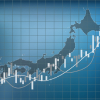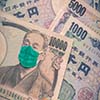Japan
Japan equity outlook 2024
We expect 2024 to be a year of domestic consolidation and long-term reform measures, where markets are driven more by Japan-specific events than by global factors. After decades of deflation, we see Japan as finally breaking out of this cycle in 2024, as it enters a virtuous cycle of price increases and wage hikes.
2023 Japan equity outlook
As geopolitical risks and globalisation are reassessed in the wake of the COVID-19 pandemic and war in Europe, we believe that Japan stands to benefit as more companies refocus on their home markets.
Navigating Japan Equities: Monthly Insights from Tokyo (June 2022)
This month we explain why losses by Japanese equities so far in 2022 have been limited relative to their peers; we also assess the positive impact a return of inbound tourism could have on Japan’s economy and markets.
Navigating Japan Equities: Monthly Insights from Tokyo (May 2022)
We discuss the implications of the weak yen, now considered by some as a menace rather than a blessing, for the Japanese market and economy. We also explain the potential impact of higher energy and commodity prices.
2022 Japan Equity Outlook: ESG to bring Japan to the fore
ESG initiatives are expected to become ever more important for companies and investors around the world in 2022. We expect many Japanese companies to come to the fore amid this global shift towards ESG, with enhancements in ESG disclosures shedding light on their value creation opportunities amid the current drive towards decarbonisation.
While the Japanese equity market managed to strongly rebound in 2020 after a sharp fall at the start of the pandemic, it has lagged its peers in 2021 amid the country’s struggle to contain COVID-19 and its slow rollout of vaccinations.
Net zero carbon: Is it all just hot air?
"Nowadays people know the price of everything and the value of nothing", quipped Oscar Wilde.
Japan Equity Monthly - April 2021
We gauge Japan’s slow vaccine rollout from an economic perspective and assess the shift in work styles that occurred during the pandemic and its potential impact on real estate prices.
Japan Equity Monthly - March 2021
We provide our view on the Bank of Japan’s latest policy review, under which the central bank decided to allow long-term rates to fluctuate in a wider band and removed its annual target for ETF purchases. We also assess the barring of foreign spectators from the Olympic games.
Japan Equity Monthly - February 2021
We assess the factors that enabled the Nikkei to rise above the 30,000 threshold for the first time since 1990; we also view the recent Robinhood frenzy from a Japanese market perspective.
Ample upside room for slow recovering J-REITs
In 2020 the COVID-19 pandemic negatively affected a wide variety of Japanese assets, including the real estate investment trust (J-REIT) market. J-REITs have bounced back since, but their recovery has been sluggish compared to the Japanese equity market’s rebound. Despite the slower recovery, we believe J-REITs have ample upside room once the rise gathers pace.
Japan Equity Monthly - January 2021
We discuss Japan’s robust manufacturing sector and why it is not about reclaiming the past; we also take a look at the BOJ’s ETF purchases amid the current rally by equities.
Japan Equity Monthly - December 2020
We look into the potential economic impact of Japan’s attempt to become carbon neutral. We also analyse why Japan’s fiscal condition draws little attention although the country is on course to spend a record amount in its upcoming budget.
2021 Japan Equity Outlook
We believe 2021 will be remembered as a year that marked the beginning of the end of the COVID-19 crisis as the world develops vaccines to counter the pandemic. In Japan, we expect a gradual recovery of its economy in 2021, as the pandemic’s impact lessens, and economic activity normalises.
Beyond the pandemic: Identifying sources of alpha in Japan
The global markets surged in 2020 despite the COVID-19 pandemic. While we expect the liquidity-driven rise to continue for a while, we should be prepared for the tide to eventually turn. We identify Japanese industries, notably “Delta ESG” stocks, that could become sources of alpha in the post-pandemic world.
Efficiency of Japanese corporate investment in human capital and shareholder value
Japan struggles with an aging and shrinking population and it is important for the country, both from an economic and social perspective, to improve its relatively low labour productivity by efficiently utilising its human resources.
Japan Equity Monthly - October 2020
We discuss the reasons behind the Japanese equity market’s recent outperformance and the factors likely required for the gains to be sustainable in the longer term. We also assess the recent surge by the Mothers Index and key points to watch going forward.
Adapting to the “new normal”: Japan’s paradox
With the global outbreak of COVID-19 in the first half of 2020, the world was turned upside down. Under such circumstances, Japanese companies are now faced with new challenges to adapt to this “new normal”.
Japan Equity Monthly - September 2020
Yoshihide Suga, Japan’s new prime minister, is widely expected to retain his predecessor’s fiscal and monetary policies known as “Abenomics”.
Global Investment Committee Outlook: A new regime ahead
Clearly, it remains difficult to predict events in this volatile environment, but in the interest of our clients, we do our best and fortunately this time, we had virtually unanimous agreement on a similar scenario as in June, both politically and economically.
Suga - Likely the most pro-Third Arrow reform PM in Japan’s history
Despite major improvements over the last two decades, some critics will always doubt the progress of economic reform in Japan.
SugAbe-nomics
It does not seem that there are enough differences between Abenomics and the proposed economic policies of likely new Prime Minister Suga to justify the completely new portmanteau “Suganomics,” as a few analysts have suggested.
Japan Equity Monthly - August 2020
In late August the Nikkei made a full recovery from the "Corona shock" lows touched in March, amid initiatives by the government and the central bank.
The Buffett fillip
Although it is fairly clear that Buffett’s investment is not just a passive one in that he intends to collaborate on business ventures with these trading companies, the fact that the world’s most famous investor has committed to such large sums has ramifications for both domestic and international perceptions about Japanese equities.
Japan’s Abe situation part 2
Many media reports are suggesting that Yoshihide Suga is leading the race to be Japan’s next prime minister, with a main question being whether he, without a large faction of his own, will just be a temporary placeholder for new leader.
Japan's Abe Situation
It is attention-grabbing for some analysts and soothsayers to speculate on politics, but this is no casual matter.
Japan Equity Monthly - July 2020
The Japanese equity market dropped in July, with the TOPIX (w/dividends) declining 4.02% on-month and the Nikkei 225 (w/dividends) falling 2.60%.























